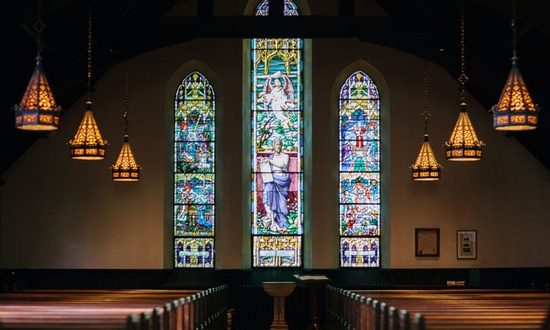I realize this is a sensitive topic for Catholics who love Jesus and believe in salvation by grace through faith, and also for those who don’t. It’s sensitive as well to evangelical Christians who know and love sincere Catholics, as many of us do.
Certainly the face of Catholicism has changed. But the fact is that it still officially holds to and teaches a variety of key doctrines that are fundamentally unbiblical and contrary to the Gospel of the Grace of God in Christ. (This is not judgment and condemnation, it is a sincere conclusion based on reading and listening to the stated doctrines of the church, then comparing them to what I believe Scripture actually teaches.)
Many evangelicals rightly seek unity, but wrongly do so at the expense of honestly addressing the teachings of the Catholic Church that remain at odds with Scripture. The fact that you may know a Catholic who truly believes in salvation by faith, with no dependence on good works or baptism or the Lord’s Supper to give them right standing before God, does not mean this is the teaching of the church as a whole. If you know a Catholic who does not pray to Mary or believe her to be a mediator between God and humans, good for them, but this does not change official Catholic doctrine.
These days the “loving” thing is typically thought to mean that we don’t think or speak critically regarding the beliefs of others. But if truth matters—and if the Bible is right and Jesus was right, it does—then the loving thing is not to deny the reality of different beliefs and their significance. Rather, for the good of those we love, we’re to kindly engage and dialogue about these issues with our friends and family. God calls upon us to “speak the truth in love” (Ephesians 4:15). And we can’t do that unless we are accurately informed of what the truth is.
Certainly we should identify areas of commonality, and evangelical Christians do have much in common with Catholics, including our belief in the trinity and the deity of Christ. These shared beliefs can be the stepping stones we walk on as we address our different doctrines.
After reading the following article, if you wish to explore this further, see the excellent book Roman Catholic Theology and Practice: An Evangelical Assessment by my friend Gregg Allison, theology professor at Southern Seminary. This is the book’s description:
Noting prominent similarities without glossing over key differences, this book will equip Christians on both sides of the ecclesiastical divide to fruitfully engage in honest dialogue with one another.
Here’s an excerpt from Tim Challies’s blog post, “Is the Reformation Over?”
Is the Reformation over? Have the issues that divided Protestants and Catholics been sufficiently resolved that we can now pursue a return to unity? At the very end of his book Rescuing the Gospel, an account of the Protestant Reformation, Erwin Lutzer offers a compelling answer. While he admits that both Protestantism and Catholicism have developed since the sixteenth century and while he points out areas in which Protestants and Catholics are working in a common cause toward common goals, he insists that the Reformation has not yet come to an end. Any unity would come at the expense of the gospel. “On the most critical issue, namely the salvation of the human soul, Luther’s Reformation is far from over … No matter how many changes the Catholic Church makes, it will not—indeed cannot—endorse an evangelical view of salvation.”
Many make the argument that Catholicism has changed, that the church of the twenty-first century is so vastly different from the church of the sixteenth century that the old disagreements and arguments no longer hold. But here Lutzer points to 5 contemporary teachings of the Roman Catholic Church that must continue to divide us.
Photo: Unsplash




